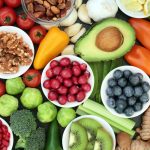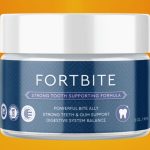Selenium, an antioxidant mineral, which scientists previously feared due to its potential toxicity, is the last of 40 nutrients to be shown to be essential for human health. The latest study indicates that it may actually help prevent both heart disease and cancer, the two leading causes of death in the Western world.
The most recent study, led by Larry C. Clark, Ph.D, at the Arizona Cancer Center, followed healthy East Coast residents for over ten years who were felt to be at high risk for skin cancer. This population was chosen because of the low levels of natural selenium found in this region. Selenium in the soil is absorbed by plants and subsequently by people and animals who eat them.
Natural selenium levels in the soil are highly variable throughout the world. In the U.S., the Eastern Coastal Plain and the Pacific Northwest have the lowest selenium levels and people in these regions naturally ingest about 60 to 90 micrograms per day. This compares to a range of 60 to 200 micrograms all over the U.S. with 125 being average.
People in this study were given either a placebo or selenium supplements of 200 micrograms (three times their normal intake) which were made up of selenium enriched yeast, an organic form of selenium as distinguished from most other supplements that are inorganic and may not have the same effect. While the study did not prove what it originally set out to, namely that selenium reduces the risk of skin cancer, it did find that it greatly reduced the risk of many other kinds of cancer. People taking the selenium supplements had 71% fewer prostate cancers, 67% fewer esophageal cancers, 62% fewer colorectal cancers and 46% fewer lung cancers than the people who were taking the placebos.
“Selenium is an antioxidant that can help to prevent the degradation of fats and cell membranes and block the action of cancer-causing chemicals.” Over 100 animal studies have shown that animals given selenium-rich diets help protect them against many cancers, including breast, esophagus and liver. Another study conducted throughout the U.S. found that people in the areas with the highest levels of selenium had the lowest levels of lung, colon and rectum, bladder, esophagus, pancreas, breast and ovary cancer.
In earlier studies, people with low dietary intakes of selenium were found to have an increased risk of high blood pressure related diseases including heart attack and stroke. In fact, their chances of dying from a heart attack were three times greater than those with higher levels of selenium. Researchers believe that this may be due to selenium's ability to increase blood levels of HDL cholesterol (“good cholesterol”) which helps prevent heart disease.
Another short-term study showed that men fed a selenium-rich diet actually reported improvements in general mood, were able to think more clearly, and felt generally happier than at the start of the study. This compares to another group of men given a selenium-poor diet who reported feeling worse.
Researchers are quick to caution that selenium in high doses can be very dangerous. Earlier in the century, cattle who fed in areas with extremely high levels of selenium were struck with two unrelated conditions called “alkali disease” and “blind staggers”. In 1984, 11 people were poisoned by selenium supplements that accidentally were made with 125 times the normal amount. They suffered from loss of hair and fingernails, nausea, vomiting and fatigue. This same effect was seen in people who took only 25 times the normal amount.
Selenium is naturally found in foods high in protein, such as fish, meat, poultry, cereals and other grains. It can also be found in vegetables like mushrooms and asparagus. Brazil nuts, especially with their shells on, are very high in selenium. Some experts believe that vegetarians who do not eat fish may not be getting enough selenium. The National Academy of Sciences' Food and Nutrition Board has stated that a daily intake of between 50 to 200 micrograms of selenium is “safe and adequate”. It recommends 55 micrograms for women, 70 for men, and between 10 and 45 micrograms for infants and children up to age 14.










